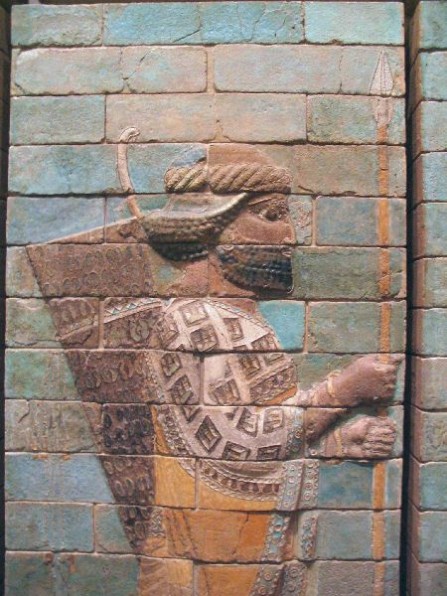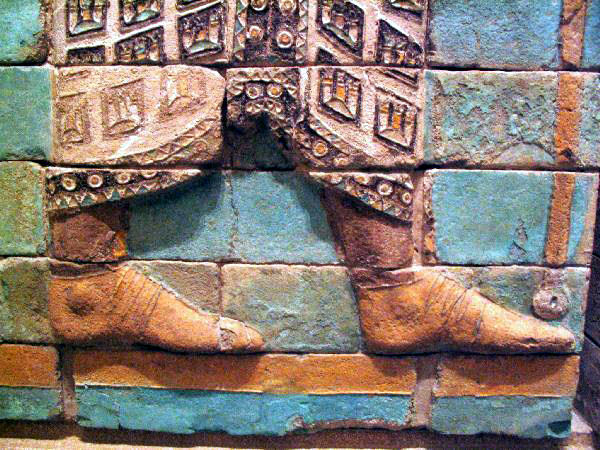"Immortals"
Immortals: Greek name for an elite regiment in the ancient Achaemenid empire.

In his description of the battle of Thermopylae (480 BCE), the Greek researcher Herodotus mentions a Persian elite corps which he calls the Ten Thousand or the Athanatoi, the "Immortals". He describes them as
a body of picked Persians under the leadership of Hydarnes, the son of Hydarnes. This corps was known as the Immortals, because it was invariably kept up to strength; if a man was killed or fell sick, the vacancy he left was at once filled, so that the total strength of the corps was never less - and never more - than ten thousand.
Of all the troops in Persian army, the native Persians were not only the best but also the most magnificently equipped; their dress and armor I have mentioned already, but I should add that every man glittered with the gold which he carried about his person in unlimited quantity. They were accompanied, moreover, by covered carriages full of their women and servants, all elaborately fitted out. Special food, separate from that of the rest of the army, was brought along for them on dromedaries and mules.note
As he indicates, Herodotus has already mentioned the Persian equipment:
The dress of these troops consisted of the tiara, or soft felt cap, embroidered tunic with sleeves, a coat of mail looking like the scales of a fish, and trousers; for arms they carried light wicker shields, quivers slung below them, short spears, powerful bows with cane arrows, and short swords swinging from belts beside the right thigh.note
We also learn from Herodotus that this elite corps played an important during the Battle of Thermopylae. The Greeks had blocked a narrow road along the coast and prevented the Persians from invading Greece. However, the Immortals made a detour and were able to attack the Greeks in the rear. They are also mentioned during the second year of the war, in 479 BCE, when they remain in Greece in the army of the Persian commander Mardonius.
The big problem with this elite corps is that they are unknown from other sources. (There are, of course, other Greek and Latin texts that mention the Immortals, but they have taken this name for the Persian elite troops from Herodotus and simply mean: the royal guard.) There is ample evidence from Persia - e.g., the Persepolis fortification tablets - but it does not mention a corps of Immortals. Probably, Herodotus' informant has confused the name Anûšiya ("companions") with Anauša ("Immortals").

The historians of Alexander the Great mention another elite regiment, which they call the Apple Bearers. Their spears had a small metal counterweight to balance the heavy point. Because this counterweight resembled an apple, they received their remarkable surname. Several scholars believe they are identical to the Immortals.